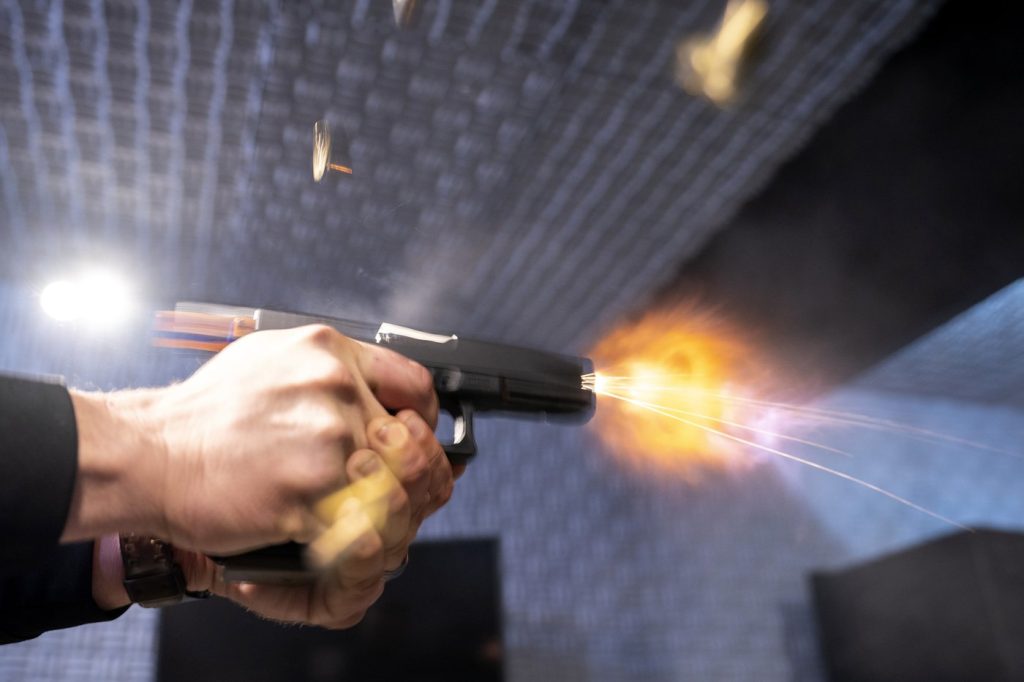In recent years, several U.S. states have responded to growing concerns about gun violence by enacting laws that outlaw devices designed to convert semiautomatic pistols into machine guns, commonly known as Glock switches. New Mexico and Alabama are among the latest states to introduce such legislation, reflecting bipartisan support for addressing this pressing issue.
Lawmakers in New Mexico, led by Democratic Governor Michelle Lujan Grisham, passed a law in February that makes the possession of conversion devices a felony, punishable by up to three years in prison. Concurrently, Alabama's Governor Kay Ivey signed a similar law this month, making it a felony to possess parts intended to convert pistols into machine guns, with penalties of up to ten years.
According to recent data, over half of U.S. states have laws prohibiting the possession of machine gun conversion devices. This trend marks a significant increase over the past decade, as law enforcement agencies have reported a rise in the recovery of these powerful devices, which are increasingly found attached to firearms. The Bureau of Alcohol, Tobacco, Firearms and Explosives (ATF) has indicated a dramatic spike in the number of confiscated conversion parts, escalating from just 814 between 2012 and 2016 to 5,454 from 2017 to 2021. Moreover, the Biden administration revealed that 12,360 suspected machine gun conversion devices were recovered in a 34-month period ending in October 2024.
U.S. federal law defines a machine gun as a firearm that automatically fires more than one shot with a single pull of the trigger and encompasses any parts designed for such conversions. The possession of machine guns manufactured after 1986 is generally prohibited, with some exceptions for law enforcement and licensed dealers. Those convicted of owning machine guns or conversion devices can face penalties of up to ten years in prison.
A Glock switch, specifically, is a type of machine gun conversion device that attaches to the back of a Glock pistol, altering its trigger mechanism to allow for continuous firing while the trigger is held back. This small device can significantly increase the rate of fire, making pistols equipped with it nearly indistinguishable in function from factory-made machine guns. Other brands of pistols, as well as some semiautomatic rifles, can also be converted using similar devices, often referred to as auto sears or selector switches.
Gun control advocates, such as the organization Everytown for Gun Safety, support these state-level initiatives and are pushing for even more stringent regulations. They argue that existing laws can serve as an easier path to prosecution than federal laws concerning conversion devices. Furthermore, they are advocating for legislation in states like California, Maryland, and New York that would prohibit the sale of handguns capable of being converted into machine guns.
On the other hand, gun rights groups provide a counter-narrative, asserting that current laws adequately allow for prosecutions related to the misuse of conversion devices. Organizations such as the National Rifle Association argue that new state laws are unnecessary and merely serve as "political signaling." Gun Owners of America have gone so far as to assert that the Second Amendment grants individuals the right to own machine guns, contending that state-level bans are redundant.
As states such as Alabama and New Mexico lead the way in implementing stricter regulations on gun modification devices, the debate over gun control and rights in the United States continues to evolve. With various stakeholders contributing to the discussion, the landscape of firearms legislation remains complex and contentious.










